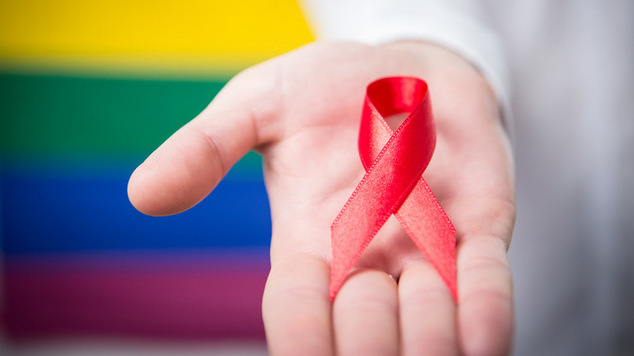
A rare case of a person being diagnosed with HIV and now no longer having the virus has been reported at the World AIDS Conference in Paris.
A nine-year-old South African child who was diagnosed with HIV infection at one month of age and received anti-HIV treatment during infancy has suppressed the virus without anti-HIV drugs for eight and a half years.
This case appears to be the third reported instance of sustained HIV remission in a child after early, limited anti-HIV treatment.
Previously, the ‘Mississippi Baby’, born with HIV in 2010, received anti-HIV treatment beginning 30 hours after birth, stopped therapy around 18 months of age, and controlled the virus without drugs for 27 months before it reappeared in her blood.
In 2015, researchers reported that a French child who was born with HIV in 1996, started anti-HIV therapy at age 3 months, and stopped treatment sometime between ages 5.5 and 7 years continued to control the virus without drugs more than 11 years later.
Researchers say that further study is needed to learn how to induce long term remission for children born with the virus.
“Further study is needed to learn how to induce long-term HIV remission in infected babies,” said Dr Anthony S. Fauci, director of the National Institute of Allergy and Infectious Diseases (NIAID), part of the National Institutes of Health (NIH).
“However, this new case strengthens our hope that by treating HIV-infected children for a brief period beginning in infancy, we may be able to spare them the burden of life-long therapy and the health consequences of long-term immune activation typically associated with HIV disease.”
NIAID funded the clinical trial in which the child received treatment and follow-up monitoring.
The South African child whose case was reported today was definitively diagnosed with HIV infection in 2007 at 32 days of age, and then was enrolled in the NIAID-funded Children with HIV Early Antiretroviral Therapy (CHER) clinical trial.
HIV-infected infants in the trial were assigned at random to receive either deferred antiretroviral therapy (ART) or early, limited ART for 40 or 96 weeks. The current child was assigned to the group of 143 infants who received early ART for 40 weeks.
Before starting treatment, the child had very high levels of HIV in the blood (viral load), but after beginning ART at about 9 weeks of age, treatment suppressed the virus to undetectable levels.
Investigators halted treatment after 40 weeks and closely monitored the infant’s immune health, and the child has remained in good health during years of follow-up examinations.
Although it was not standard practice in South Africa to monitor viral load in people who were not on ART, recent analyses of stored blood samples taken during follow-up showed that the child has maintained an undetectable level of HIV.
When the child was 9-and-a-half years old, investigators conducted thorough laboratory and clinical studies to assess the child’s immune health and the presence of HIV.
The scientists detected a reservoir of virus integrated into a tiny proportion of immune cells, but otherwise found no evidence of HIV infection. The child had a healthy level of key immune cells, a viral load that was undetectable by standard assays, and no symptoms of HIV infection.
The researchers detected a trace of immune system response to the virus, but found no HIV capable of replicating. The scientists also confirmed that the child does not have genetic characteristics associated with spontaneous control of HIV, suggesting that the 40 weeks of ART provided during infancy may have been key to achieving HIV remission.
Dr Avy Violari, who co-led the study said the researchers believed this was the first reported case of a child having sustained remission from HIV.
“To our knowledge, this is the first reported case of sustained control of HIV in a child enrolled in a randomized trial of ART interruption following treatment early in infancy.”
Receiving ART might not have been the only factor affecting how the child’s body dealt with HIV according to Dr Caroline Tiemwssen, whose laboratory in Johannesburg is studying the child’s immune system.
“We believe there may have been other factors in addition to early ART that contributed to HIV remission in this child,” Dr Tiemessen said. “By further studying the child, we may expand our understanding of how the immune system controls HIV replication.”
Experts have warned that the case is an extreme rarity and is just one case among the 37 million people who are living with HIV around the world.
President of the International AIDS Society (AIS), Linda-Gail Bekker, said “it raises more questions than it necessarily answers”.
“It does raise the interesting notion that maybe treatment isn’t for life. (But) it’s clearly a rare phenomenon,” she said.
Of the 37 million people living with HIV, nearly half are now receiving treatment against the virus.
OIP Staff
Support OUTinPerth
Thanks for reading OUTinPerth. We can only create LGBTIQA+ focused media with your help.
If you can help support our work, please consider assisting us through a one-off contribution to our GoFundMe campaign, or a regular contribution through our Patreon appeal.




